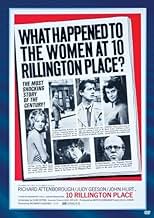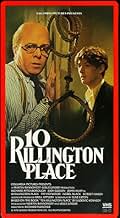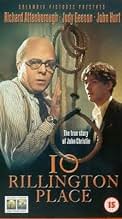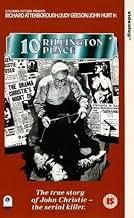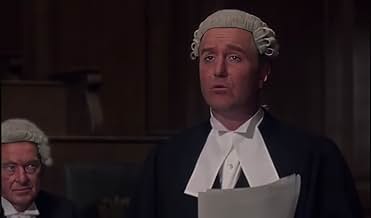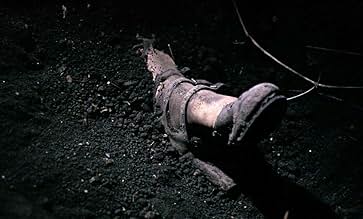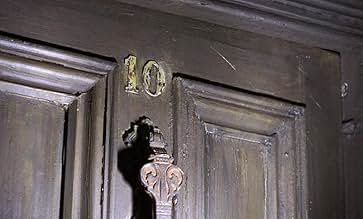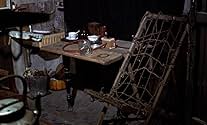No need to repeat consensus points already made. Instead, I'll try to touch on noteworthy aspects generally unmentioned.
The movie's not only a reflection on the death penalty, but on anti-abortion laws, as well. Those desperate women wouldn't have been driven into the clutches of the lunatic Cristie were abortion licensed and legal. That may not have stopped his madness, but he would have had to come up with a different ploy.
The movie focuses on one particular episode (the Evans killings) rather than the series of killings that actually covered a considerable time period. So, cooped up in the city, Cristie ends up hiding his many victims where he can (in the garden, in the washroom, in the walls). What surprises me is that no one, least of all, the wife, notices what must have been an atrocious smell.
Note the dispatch with which Evans is hanged, unlike the more ritualized American way. I assume the movie is an accurate depiction. He walks into an ordinary room, the hood is placed over his head, and plop, the trapdoor opens. And it takes just about that long. The suddenness really startled me.
Contrast two ends of the serial killer spectrum—the shy, unattractive Cristie and the charming, handsome Ted Bundy of 1970's America. Understandably, Bundy had no trouble luring girls to their doom; judging from the movie, however, Cristie's victims must have been truly desperate to let that little creep lay hands on them.
Not mentioned in the movie, but in one of the books that I recall, is that Cristie kept swatches of pubic hair as trophies.
Like any good document on serial killers, the film presents a glimpse of lives and social levels that otherwise go unnoticed. Here we get a sense of a decaying part of London and the dreary lives hanging on there. A good movie or book is like a knife slicing through a cake, exposing layers that otherwise remain hidden. That's the particular strength of this film.
My only reservation is the casting of Judy Geeson as Evans' wife. She seems too pretty and smart to be hooked up with a dead-ender like Evans. Still and all, Geeson's performance is excellent— note her subtle expressions on first meeting the creepy Cristie. Nonetheless, I suspect her casting was the one concession the producers made to commercial appeal.
All in all, it's a grim, ugly film-- as it should be. We may not get much sense of why Cristie has taken the warped, monstrous turn he has. But then such dark matters may be beyond us, anyway. Above all, the movie should not be viewed in a depressed state or if you're looking for a room to rent.


